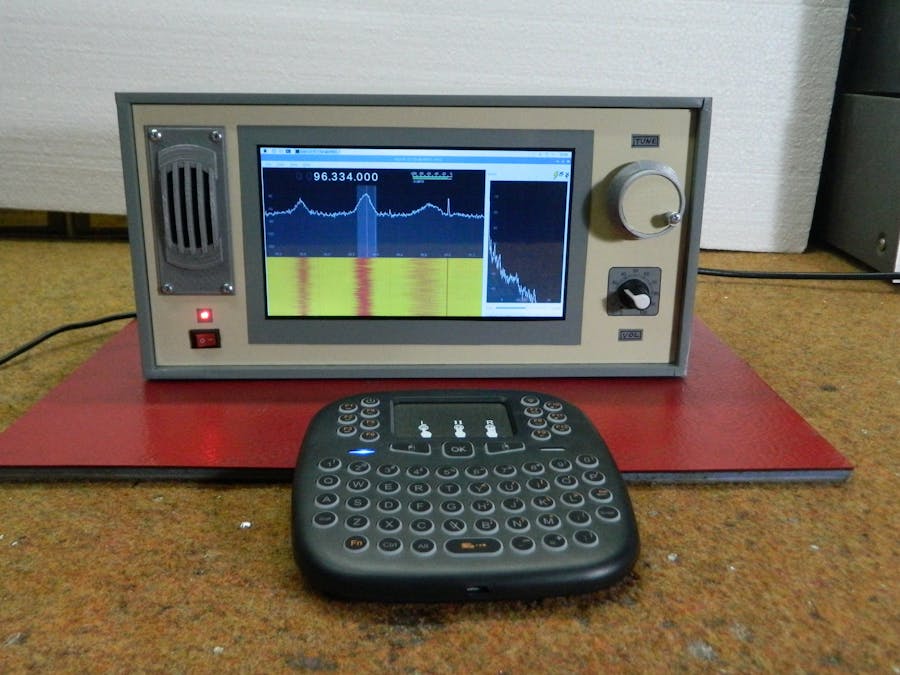The radio presented above is capable of receiving the entire spectrum, from 500 kHz to 2 Gigahertz
Software-defined radio (SDR) is a radio communication system where components that have been traditionally implemented in hardware (e.g. mixers, filters, amplifiers, modulators/demodulators, detectors, etc.) are instead implemented by means of software on a personal computer or embedded system.
The radio presented in the video above is capable of receiving the entire spectrum, from 500 kHz to 2 Gigahertz. It can decode all digital and analog radio signals. Also contains a tuning knob for easier frequency dialing. The device consists of several parts:
- The heart of the device is Raspberry Pi 3 model B + board, And RTL SDR dongle
- Rotary encoder with control board (The control board is actually a USB mouse on which the original rotary encoder has been replaced by a larger robust encoder)
- 7 Inch Touch Panel Display with resolution of 1024 on 600 pixels
- Small D-Class Audio amplifier board
- Speaker
- small fan for cooling Raspberry Pi CPU
- Power supply connector
- and BNC Antenna jack
SD card consist a "HamPi" Ham Radio Software for Raspberry Pi from W3DJS. It is actually a image of a Raspbian Pi operating system with preinstalled all the necessary HAM programs. The download links and how to install the SD card are given in the text below:
https://sourceforge.net/projects/hampi/
https://www.youtube.com/watch?v=Bnpln-aRWrs
RTLSDR power consumption is about 300mA and display consumption is 1A, so I had problems with stability of the whole system. I solved that by connecting the power supply of the USB dongle directly to + 5V as shown in the pictures in the description. The Raspberry Pi audio output is connected to the input of the power amplifier board to which output is connected the speaker.
Let me mention that instead of RTLSDR we can use AirSpy, FUNcube dongle, HackRF or SDRPlay SDR. I use the "GQRX - Software defined radio receiver" software to show you the basic radio features of this device But we also have a dozen other signal processing programs available, which are not presented in this video and I hope to present them to you in one of the following videos. In short, everything we can do with these SDR radio hardware on the Windows OS is available here at Raspbian Pi HamPi OS. In this case, the big advantage is the use of the touch screen function and the rotary encoder, such as the fact that this is a complete compact device in a relatively small housing. A small wireless keyboard and mouse combination is used for ease of use.



